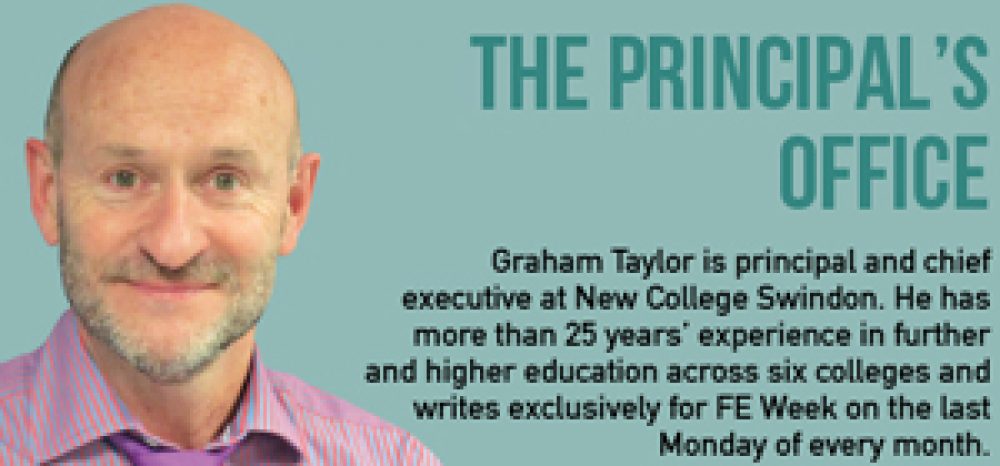There’s understandable angst in FE colleges about the area reviews. It’s an issue that’s been playing on my mind and so I’ve tried to get down some of the main points about these that are bugging me.
Government says that the ‘post-16 education sector is critical to our strategy of raising productivity and economic growth’. Yes, everyone says they love FE — but no one wants to pay for it.
Schools are safe (at least in cash terms) and higher education has the benefit of uncapped loans. However, the imminent Spending Review will signal less public money and more cuts.
Meanwhile, Scotland has gone from 37 to 20 colleges saving (allegedly) £50m through a 9 per cent staffing cut.
And so we hear there is ‘significant scope for greater efficiency in the sector’ — really? Overall, the sector makes 1 per cent profit. That’s a miracle given the cuts since 2008.
It’s therefore clear that the number of colleges in financial difficulties will increase unless things are sorted quickly. And that’s tough. Sacking people is no fun and the other option is to be ‘rationalised’ by someone else.
There are 1,232 providers, of which 341 are colleges making up just 28 per cent and 48 per cent of funding — 45 per cent of 16 to 18 and 53 per cent of Skills Funding Agency funding.
It’s clear therefore that area reviews must include all post-16 providers — including school sixth forms and independent learning providers.
But does ‘area’ even make sense? Travel to learn and work patterns do not easily align with area reviews. Many colleges have regional or national coverage across local enterprise partnerships (LEPs) working where the business is. Using geographical boundaries makes little sense for modern, forward-thinking colleges.
Area reviews won’t reflect modern delivery systems — borderless e-learning and globalisation in education. Digital is transformational.
And analysing supply and demand for skills and training is difficult and out of date by time of publication. It might just work for 16 to 18s but adult markets are complex and dynamic; trying to plan them is nigh on impossible.
There is however over-supply in the 16 to 18 market and the government has allowed too many new school sixth forms, free schools, private trainers, etc.
There are 1,200 schools in England with fewer than 100 learners in each. A review of these should come first for value for money with average class sizes that would be unaffordable in colleges
There are, for example, 1,200 schools in England with fewer than 100 learners in each. A review of these should come first for value for money with average class sizes that would be unaffordable in colleges.
Government wants “fewer, often larger, more resilient and efficient providers” — but there’s no guarantee that bigger means better, either in effectiveness or efficiency. It’s how an entity is managed and responds to markets that counts. Indeed, there’s little correlation between size and financial performance — some big ‘uns are running big deficits.
Colleges and other providers should always work together where it makes sense to (it was ever thus), but forced merger or federation will only happen if you are in serious financial trouble.
Mergers can make sense but only half of them work — in business and education. Is this evidence that supply-side restructuring improves quality and value for money? Time will tell.
And UK PLC? Localism can be a myopic distraction. We’ve been here before. Remember how Trade and Enterprise Councils tried to impose dirigiste economic plans. Their impact? No, me neither. FE delivers generic and employability skills which transcend local LEP skills plans.
Keep focussed on learners so they value FE and pay for it. Lobby for uncapped 19+ adult loans for all provision to give us a chance to survive — it’s worked for higher education.
Work it out yourselves before you are ‘done unto’ No expensive consultants telling us what to do. Markets move faster than reports. Be there first.
Graham Taylor is principal and chief executive at New College Swindon. He has more than 25 years’ experience in further and higher education across six colleges and writes exclusively for FE Week on the last Monday of every month.



Why do you talk in jargon Graham? Try plain English and then you might get some responses to your writing.